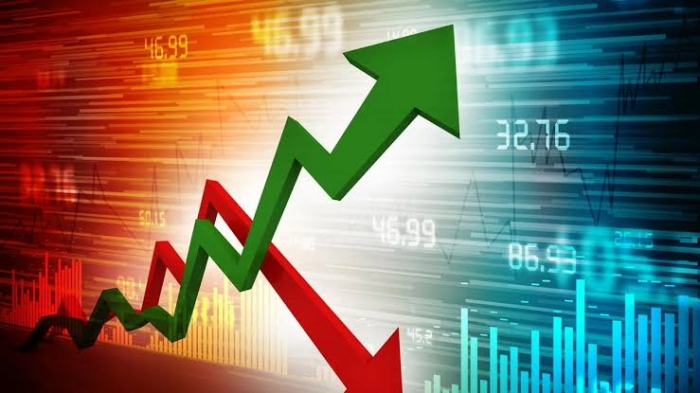According to the National Bureau of Statistics (NBS), Nigeria's headline inflation rate decreased to 23.71% in April 2025, down from 24.23% recorded in March 2025, marking a 0.52% drop month-on-month.
The April 2025 inflation figure also represents a significant year-on-year decrease of 9.99% compared to April 2024's rate of 33.69%, though this comparison involves a different base year.
On a month-on-month basis, the headline inflation rate was 1.86% in April 2025, which is 2.04% lower than March 2025's rate of 3.90%, indicating a slower pace of price increases.
Food Inflation Declines
Food inflation stood at 21.36% on a year-on-year basis in April 2025, showing a substantial 19.27% decrease from April 2024's rate of 40.53%. The NBS attributes this significant decline primarily to the change in the base year used for calculations.
Month-on-month food inflation in April 2025 decreased to 2.06%, down by 0.12% from March's 2.18%. According to the NBS, this decrease resulted from lower prices for staples such as maize flour, wheat grain, dried okra, yam flour, soybeans, rice, and various beans.
Regional Variations
The NBS report highlighted significant regional differences in food inflation rates:
- Highest year-on-year food inflation: Benue (51.76%), Ekiti (34.05%), and Kebbi (33.82%)
- Lowest year-on-year food inflation: Ebonyi (7.19%), Adamawa (9.52%), and Ogun (9.91%)
- Highest month-on-month food inflation: Benue (25.59%), Ekiti (16.73%), and Yobe (13.92%)
- Some states recorded declines in month-on-month food inflation: Ebonyi (-14.43%), Kano (-11.37%), and Ogun (-7.06%)
Consumer Price Index and Other Metrics
The Consumer Price Index (CPI) rose to 119.52 in April 2025, a 2.18-point increase from the previous month. The percentage change in the average CPI for the twelve months ending April 2025 over the previous twelve-month period was 28.5%, showing a 0.4% increase compared to April 2024.
Urban inflation stood at 24.29% (year-on-year), 11.71% lower than April 2024's 36.00%, while rural inflation was 22.83%, down 8.81% from 31.64% in April 2024.
Background on Nigeria's Economic Challenges
Nigeria has experienced sharp increases in food prices in recent years, a trend that worsened in 2023 following President Bola Tinubu's removal of petrol subsidies and adoption of a floating exchange rate for the naira. These policies led to steep increases in staple food costs, pushing many Nigerians further into poverty and heightening food insecurity.
In response to the crisis, Tinubu declared a state of emergency on food insecurity in July 2023 and later suspended duties, tariffs, and taxes on essential food imports including beans, wheat, and husked brown rice to combat rising prices.
This latest decline in inflation offers potential relief after prolonged economic pressure on Nigerian households.
